The Decision 2.0
On the heels of his MVP performance, humanizing the NBA’s newest villain is more important than ever.
By Ben Seidel, St. Olaf College
Oftentimes, achieving extraordinary individual success means sacrificing one’s moral high ground or abandoning tightly knit relationships in order to take a decisive leap forward.
This theme, a bittersweet truth among humankind that commonly accompanies personal achievement, has been constantly explored and analyzed through entertainment in increasingly capitalistic societies, culminating in some of the most poignant, thought-provoking stories in recent memory. For example, “Berserk,” widely regarded as the finest fantasy manga ever to be produced, sees Griffith, the widely renowned and respected mercenary leader of the protagonist’s army, gradually descend into antagonism as his insatiable lust for personal power results in the gruesome deaths of those he previously swore to protect. Although last year’s “La La Land” initially presents the facade of a traditional romantic-comedy musical, the third act sees Emma Stone and Ryan Gosling indefinitely terminating their relationship to pursue their careers; in order to make their dreams into realities, they must sacrifice an intimate, human connection.
These are merely two examples, yet they’re universally acclaimed as exceptional innovations of their respective mediums because of their resolve in adhering to reality. The themes they present are unsettling commonalities of life for many, a constant struggle between achieving one’s professional goals and maintaining close relationships, often resulting in a heart-wrenching decision between the two. The more notable someone is and the more ambitious their dream may be, the harder this decision becomes, yet everyone, famous or otherwise, must eventually face it and confront the consequences. Perhaps with this human truth in mind, one can begin to understand the increasingly ostracized NBA star Kevin Durant.
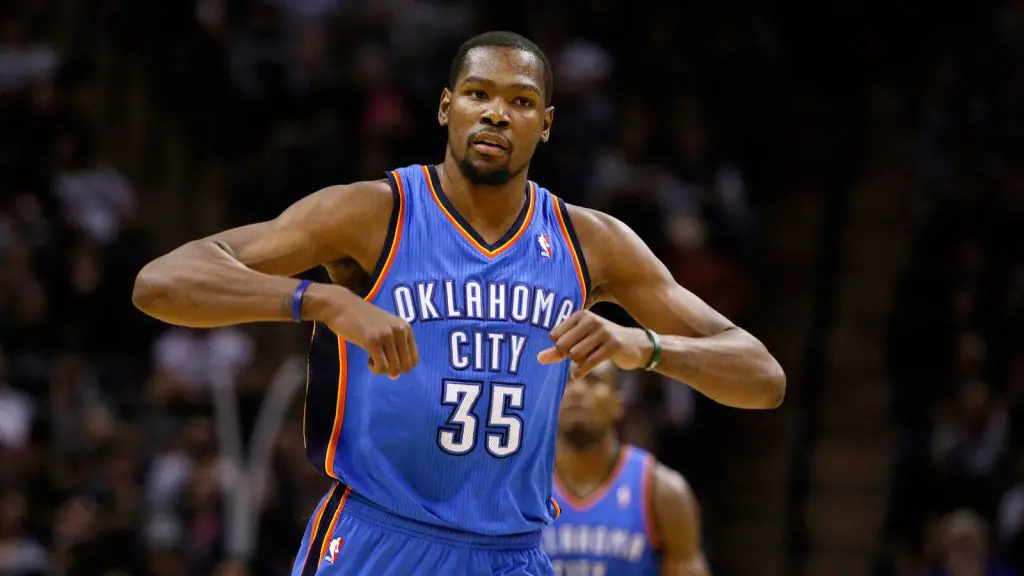
Winding the clocks back a year explains how the formerly soft-spoken basketball icon became the most infamously detested athlete in American professional sports. After jumping to a surprising 3-1 lead over the dominant Golden State Warriors in the 2016 Western Conference Finals, an opponent that posted the best regular season record in NBA history with a 73-9 mark, Durant’s Oklahoma City Thunder fumbled their chance at a shocking upset, succumbing 4-3 and heading into the offseason with far more questions than answers. One such dilemma was Durant, a free agent to be; many assumed he would sign with the Thunder, the team that drafted him, and remain loyal while seeking out his first championship with fellow superstar Russell Westbrook. However, in the ultimate if-you-can’t-beat-them-join-them move, Durant blindsided the basketball world by taking a pay cut and joining the powerhouse Warriors, the very team that eliminated him a month earlier.
Essentially, one of the best teams in NBA history had acquired arguably the second-best player in the world, making them borderline invincible. Most fans viewed this turn of events as a spineless betrayal and anticipated a boring, predictable season of uncontested Golden State dominance. Sure enough, this proved to be true; with Durant, the Warriors became an unstoppable force with no immovable object to counter them, going 16-1 in the 2017 NBA playoffs and securing their second championship in three years. The aftermath has left basketball fans bitter, their wrath primarily aimed at Durant, constantly referring to him as a cupcake, a snake and a gutless hack lacking the heart of a true competitor, even deeming his championship victory illegitimate. Many NBA followers unabashedly despise Durant for joining the best rather than putting in the work to beat them, transforming his image from the former likable underdog to the undisputed villain of basketball.
It’s easy to see why the reactions have been so harsh, even more so than in the past when other notable athletes have taken similar surprising actions. LeBron James was widely hated after forming a “super team” with the Miami Heat alongside superstars Dwyane Wade and Chris Bosh, but he did so in order to topple 2010’s Eastern Conference champions, the Boston Celtics. Rather than joining forces with the best, he instead became the best, a crucial distinction between the two narratives in question.
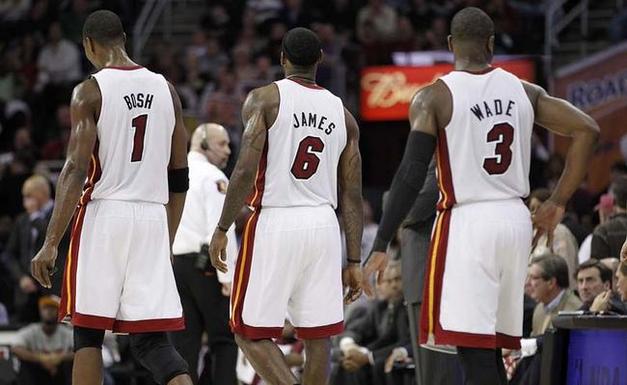
Unlike James, Durant will continue to be ostracized from public approval without forgiveness because, rather than following or even branching away from the traditional underdog hero’s tale, he blatantly subverted it. When witnessing stories unfold, people are naturally predisposed to supporting dark horse contenders who exude tenacity and perseverance over natural talent or overwhelming strength. This is nearly universally accepted in all worldwide narratives of similar underdog paradigms: hard work that overcomes tremendous antagonistic odds leads to a widely beloved character.
Rocky Balboa, rather than giving up and accepting a life of disappointment, challenges Apollo Creed with incredible determination. Goku constantly topples foes who are much stronger than him by undergoing incredibly strenuous training without corrupting his pure heart. The humble Luke Skywalker overcomes the dark side of the force even when offered the chance to join the powerful Empire. The latter example, in particular, explains the widespread disapproval of Durant; rather than remaining with the Thunder and working hard to overcome seemingly unbeatable opponents, Durant joined the dark side and ravaged teams beneath him.
It’s a direct reversal of what people typically expect from those put in a position to succeed by taking the moral high ground, and when people are caught off-guard by something unfamiliar, the natural tendency is toward hostility. As the Joker mentions in “The Dark Knight,” when things don’t go according to plan, everyone loses their minds. In this case, the culmination of Durant’s actions caused labels of “weak” and “spineless” to be tossed around, which, from the fan perspective, he arguably deserves.
However, imagine this more relatable scenario: An employee for a semi-successful business is constantly overshadowed by their much more vocal and opportunistic coworker and can’t shake the feeling that this business, while presenting a healthy work atmosphere, has no future other than mediocrity. One day, this business’ main competitor, a much more lucrative firm with a future of limitless success, recognizes this employee’s talents and explains that their latent potential can be realized if they transfer from their current employer.
This rival business doesn’t necessarily need this employee to remain successful, but hiring them would create a borderline monopoly on the industry while offering this person the tantalizing chance for a better quality of life. Caught between comfortable complacency and the promise of individual achievement, what does this employee do? Remain at a dead-end job to please others and maintain their public image, or risk alienating friends and coworkers by prioritizing personal well-being? Is either decision necessarily correct?
The metaphor is obvious, but viewing it this way humanizes Durant’s situation. It doesn’t make him a likable figure, but one far easier to understand. Even with Durant, it was incredibly unlikely that Oklahoma City was going to win a championship with the Warriors or the San Antonio Spurs dominating the Western Conference; even if the Thunder managed to best those two titans, James’ Cavaliers would, in all likelihood, be waiting in the NBA Finals. However, looking at Durant’s situation with former teammate Westbrook, it’s even easier to understand why he departed for individual success.
Like the rival employee in the hypothetical scenario, Westbrook is an incredible athlete in his own right, but his aggressive and self-assured play style clashed with and limited Durant from becoming the best player he could be. In the 2015-16 season, Westbrook attempted 1,444 field goals compared to Durant’s 1,381, yet the former scored 1,878 points with a .454 field goal percentage compared to the latter’s totals of 2,029 and .505, respectively. Westbrook takes an infamously large amount of shots with far less efficiency than Durant; he tried to overshadow Durant as the team’s superstar rather than working with and supporting him. By leaving for Golden State, Durant surrounded himself with the necessary selfless talent to ensure that he realized his potential as one of basketball’s historically great talents.
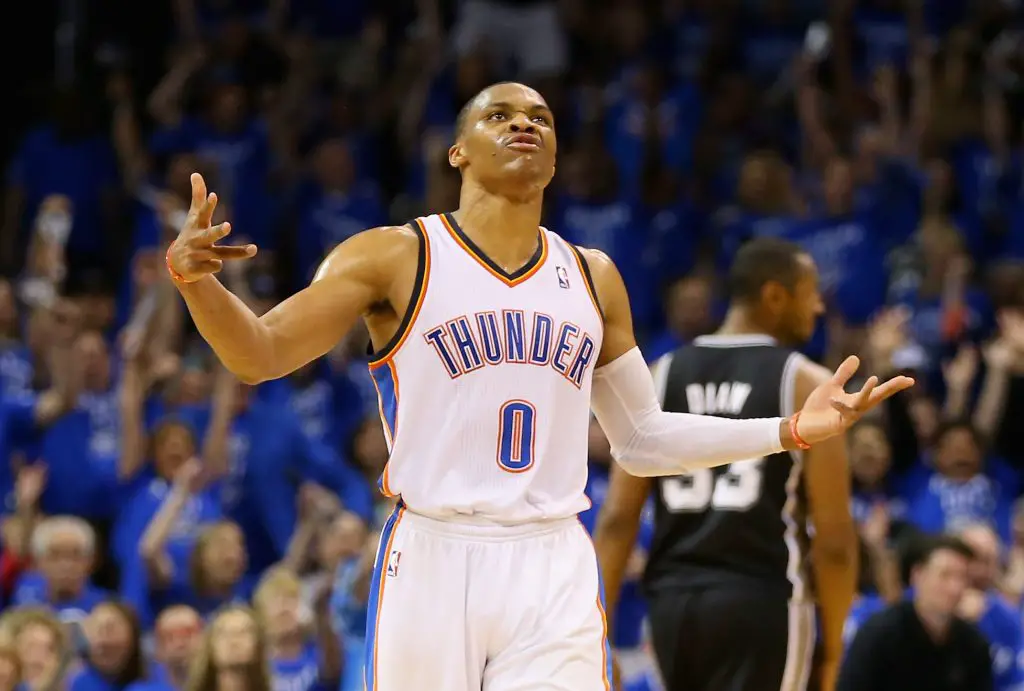
As a result, he’s walking away from 2017 as the NBA Finals MVP, shooting 35.2 points per game against the Cavaliers while outdoing even James, the face of basketball, who posted an average of 33.6. His dominant performance in his first championship victory proves that by joining the Warriors, Durant was able to blossom into the juggernaut star he simply couldn’t have become with Oklahoma City. A significant portion of this can be attributed to the other All-Stars on Golden State spreading opposing defenses too thin to properly account for Durant’s presence, but in the record books it ultimately makes no difference. Statistically, the closest measure of objectivity that contemporary sports possess, he’s a better individual player on his new team.
Like the characters of “Berserk” and “La La Land” who were forced to measure the values of human attachment compared to personal accomplishment, Durant made a choice at a critical moment in his life: either limit personal growth by sticking to the selfless decision or risk alienation by starting anew to fulfill his hidden potential. People constantly arrive at comparable crossroads throughout their lives when they must make critical decisions; some inevitably choose the self while others remain vigilant in their morals. Neither choice is inherently correct, but both are poetically human.
The only difference between Durant and any other individual forced to make a morally ambiguous decision of this nature is that his fame attracted significantly more scrutiny to a choice of tremendous gravitas, but in reality he’s no different from anyone else. Durant became an unlikable figure for his actions a year ago, but while people don’t have to accept him, it’s crucial to understand why he chose the path he currently walks. Snake, cupcake, traitor, coward; NBA fans can call Durant whatever they please, but first and foremost, he was simply a person confronted with a choice everyone eventually faces. People don’t have to like him, and they arguably shouldn’t, but he’s still worthy of understanding as a human being.


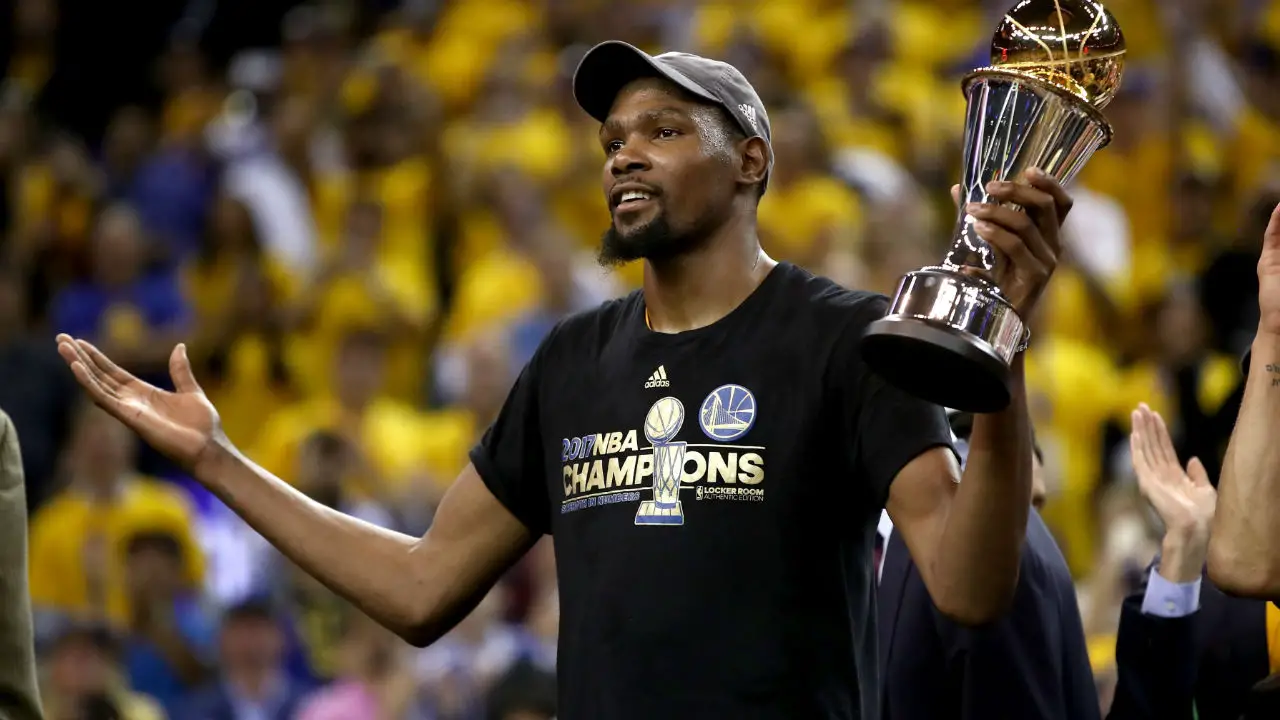



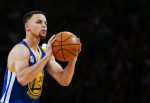


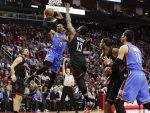








Great read!